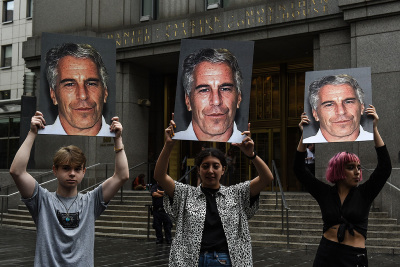
“Promises made, promises kept” became a hallmark of the first Trump administration — and for many Americans, it set the expectation for his second term. But that expectation, combined with a historic level of distrust in government — now rivaling or even surpassing the lows of Watergate and Vietnam — has ignited a political forest fire over the Trump administration’s reversal on releasing the so-called Epstein files.
Earlier this week, House Republican leaders abruptly adjourned for the August recess — a week and a half ahead of schedule — to avoid a bipartisan discharge petition that would have forced a vote on a resolution compelling the DOJ and FBI to release all Epstein-related documents within 30 days. The resolution was co-sponsored by Reps. Thomas Massie (R-Ky.) and Ro Khanna (D-Calif.), drawing support from both sides of the aisle.
Yet before lawmakers could clear out of Washington, a subcommittee of the House Oversight Committee, with three Republicans joining Democrats, voted to subpoena the Department of Justice for materials related to its investigation into Jeffrey Epstein. Momentum is clearly building.
I’ve spoken with several members of Congress who confirm that their constituents are demanding transparency. They want the truth, and they want it now.
Candidly, I’ve only followed the sordid life of Epstein and his co-conspirators peripherally — until now. But the Trump administration’s sudden about-face on releasing the documents has raised both concern and suspicion, and I’m clearly not alone. Recent polling shows that nearly 70% of Americans believe the administration is concealing information, while only 17% approve of how it has handled the Epstein files. That is not a media-driven narrative — it’s a grassroots backlash.
Contrary to the administration’s claims, this is not a controversy manufactured by Democrats or exploited by the media alone. To be sure, both have leveraged it for political gain, but the credibility crisis is one of the administration’s own making.
In the run-up to the election and during the early days of this term, President Trump and his allies stoked public expectations. They repeatedly criticized the Biden administration for its secrecy and vowed to bring sunlight to the Epstein matter. Attorney General Pam Bondi herself declared that the list of names associated with Epstein was “on her desk.” That rhetoric created a promise — one that the public expected to be fulfilled.
Earlier this week, after House leadership announced the recess, I spoke with Florida Congressman Greg Steube (R) on my daily program about the Epstein controversy. I asked whether the August break might cool the public outrage. His response was telling: “I don’t think this issue is going away,” he said. “I think we’ll be dealing with this after the August recess.”
He’s right. And the only way to stop this from metastasizing into a long-term crisis is transparency. Whatever the files may — or may not — contain, the perception of a cover-up is eroding public trust, and there is not much left to erode — not just in this administration, but in our government as a whole.
We would do well to remember Watergate. It wasn’t the break-in that toppled a presidency and forever changed the image of our nation’s highest office — it was the cover-up. That lesson remains as relevant today as it was in 1974.
Originally published at The Washington Stand.
Tony Perkins is president of Family Research Council and executive editor of The Washington Stand.

















